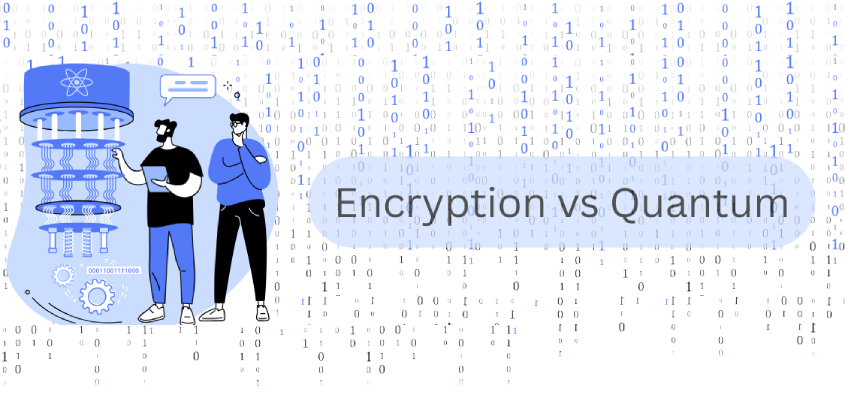
18, Mar, 2024
The Encryption Arms Race: Understanding Quantum Decryption
Ever wondered how your online stuff stays safe?
Imagine you’re sending a secret message to your friend. You wouldn’t want anyone else to read it, so you scramble the message with a code – that’s encryption in a nutshell. It protects your online information, from your credit card details to your funny cat video collection, by making it unreadable to anyone who doesn’t have the special key to decode it.
But a new challenger has emerged in the world of security: quantum computing. Regular computers process information using bits, which are like tiny switches that can be either on (1) or off (0). Quantum computers, however, exploit the strangeness of quantum mechanics. Imagine a coin spinning in the air – it’s both heads and tails simultaneously until it lands.
Quantum bits, or qubits, behave in a similar way. They can exist in a superposition of both states (1 and 0) at the same time. This allows them to perform many calculations simultaneously, making them incredibly powerful.
Here’s where things get interesting (and potentially scary for your online data). The immense processing power of quantum computers poses a significant threat to current encryption standards. Many widely used encryption algorithms, like RSA, rely on the difficulty of factoring large numbers. Think of it like a high-security vault protected by a complex mathematical lock. A regular computer would have to try every combination one by one, an agonizingly slow process.
However, a powerful quantum computer could theoretically explore all combinations simultaneously, potentially cracking the lock in a fraction of the time
Hold on, don’t hit the panic button just yet! While quantum computers sound like they could wreak havoc on online security, they’re still in their early stages of development. Experts are already working on solutions called post-quantum cryptography (PQC).
Imagine PQC as a whole new generation of encryption algorithms, specifically designed to withstand attacks from these super-powerful machines. PQC algorithms rely on entirely different mathematical problems that are much harder to crack, even for quantum computers. Think of it as a completely new vault door with a locking mechanism so sophisticated that even the most advanced tools can’t bypass it.
Quantum computers may pose a challenge in the future, but post-quantum cryptography is building a secure digital fortress to protect our online world for the days to come.
